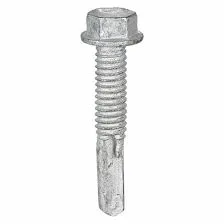resin anchors for concrete
Resin Anchors for Concrete A Comprehensive Overview
Resin anchors represent a revolutionary solution in the realm of concrete fastening systems. These innovative anchoring methods utilize high-strength resin compounds to secure various fixtures and structures into concrete, providing exceptional load-bearing capacity and durability. As construction and engineering projects demand more reliable and efficient anchoring solutions, resin anchors have gained popularity for their unique advantages over traditional mechanical anchors.
The Composition and Mechanics of Resin Anchors
Resin anchors typically consist of an epoxy or polyester resin mixed with a hardener. This two-component system is designed to cure and bond with the surrounding concrete, creating a robust anchor point. The fastening process involves drilling a hole into the concrete, cleaning it, and then injecting the resin into the hole. A threaded rod or rebar is then inserted into the resin. As the resin cures, it forms an incredibly strong bond with both the threaded rod and the concrete, resulting in an anchor that can withstand significant loads.
The effectiveness of resin anchors lies in their ability to distribute load across a larger area within the concrete, minimizing localized stress and reducing the risk of concrete failure. This is particularly advantageous in situations where the integrity of the surrounding concrete is crucial.
Applications of Resin Anchors
Resin anchors are widely used in various applications, including but not limited to, construction, infrastructure, and maintenance projects. They are ideal for securing structural elements such as beams, columns, and machinery. Additionally, resin anchors are employed in the installation of safety barriers, signage, and even in wind turbine foundations.
One significant advantage of resin anchors is their applicability in both interior and exterior settings. They are resistant to moisture, chemicals, and temperature fluctuations, making them suitable for environments where traditional anchors might fail over time. This versatility allows engineers and contractors to use resin anchors in diverse conditions, from humid coastal areas to dry desert environments.
resin anchors for concrete

Advantages over Traditional Anchors
Compared to traditional anchors, such as mechanical expansion bolts, resin anchors offer several compelling benefits. One of the most notable advantages is their superior performance in cracked concrete. While mechanical anchors often depend on friction for holding power, resin anchors can achieve bonding strength regardless of the integrity of the surrounding concrete. This characteristic is particularly important in rehabilitation projects where existing concrete structures may have developed cracks over time.
Moreover, resin anchors typically require smaller hole diameters than mechanical anchors, which results in less concrete destruction and more efficient use of materials. This can lead to reduced downtime during renovations or new constructions, as the anchoring process is streamlined.
Installation Process and Considerations
The installation of resin anchors demands meticulous attention to detail to ensure optimal performance. Proper hole preparation is critical; the hole must be cleaned of dust, debris, and moisture to facilitate a strong bond. In some cases, a vacuum or compressed air may be used to ensure the hole is clean enough. It’s also crucial to select the right type of resin for the specific application, as different resins have varying cure times and load capacities.
Contractors should also be aware of the curing time, which can influence project timelines. Depending on the specific resin formulation, curing can take anywhere from a few minutes to several hours. Temperature and humidity levels can also affect curing times, so these variables must be monitored during installation.
Conclusion
In summary, resin anchors have become a fundamental element in modern concrete fastening systems. Their strength, versatility, and reliability make them an unparalleled choice for various applications in construction and civil engineering. As technology advances and the demand for durable anchoring solutions continues to grow, resin anchors will likely play a crucial role in shaping the future of construction practices. By understanding their benefits and proper installation techniques, contractors can enhance the safety and longevity of their projects while meeting the increasing demands for efficiency and precision in the industry.
-
Weatherproof Plastic Expansion Anchors for OutdoorNewsJun.06,2025
-
Sustainability in the Supply Chain: Eco-Friendly TEK Screws ProductionNewsJun.06,2025
-
Load-Bearing Capacity of External Insulation FixingsNewsJun.06,2025
-
Double Head Bolts: Enhancing Efficiency in Industrial MachineryNewsJun.06,2025
-
Corrosion Resistance in Chipboard Screws: Coatings for Wholesale DurabilityNewsJun.06,2025
-
Butterfly Toggle Bolts : Enhancing Structural ResilienceNewsJun.06,2025
